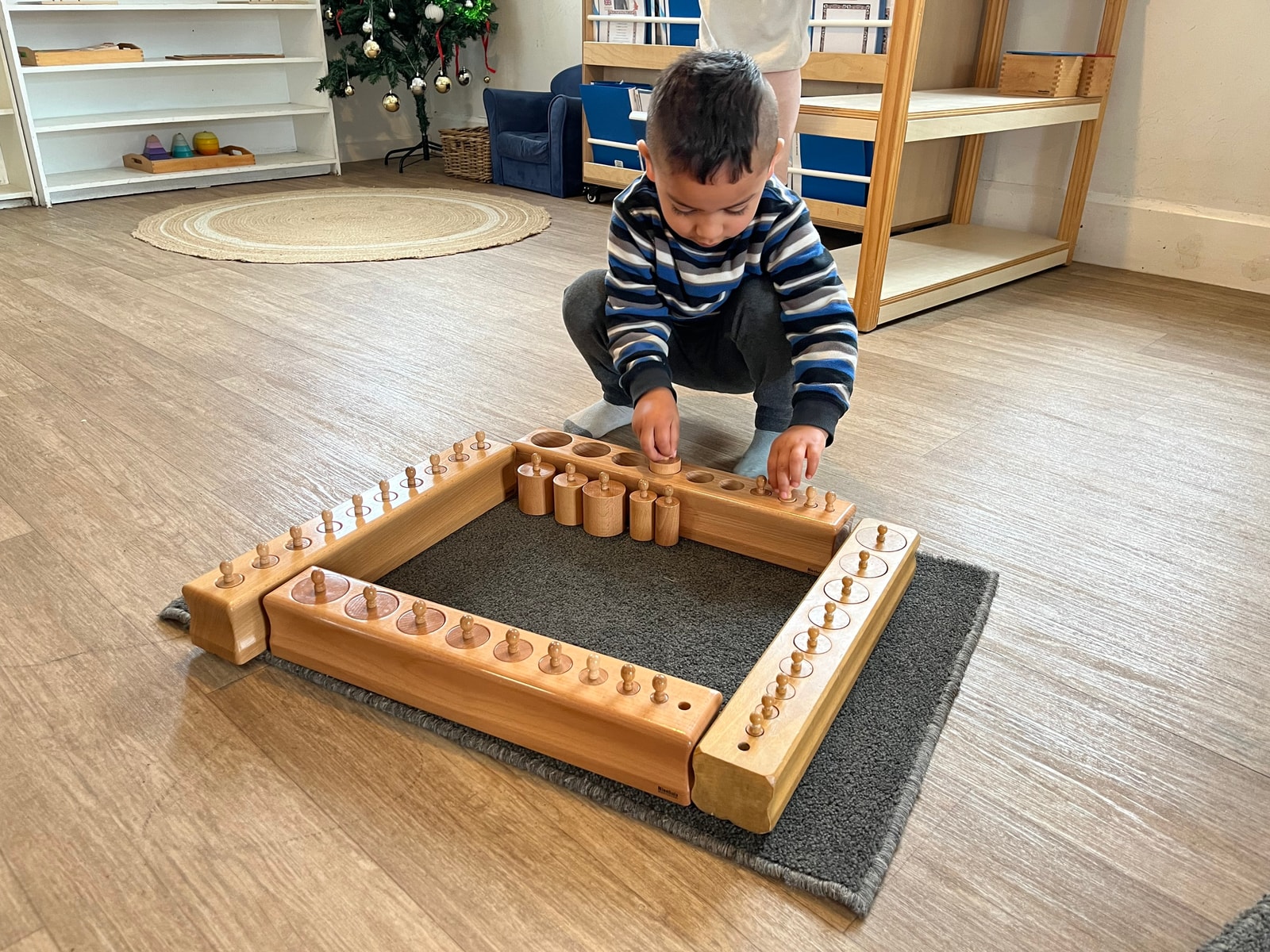LATEST STORIES
Montessori Sensorial Learning: Nurturing Comprehensive Development in Montessori Rongotai
Montessori Rongotai prioritieze and support sensorial learning as a fundamental component of their educational philosophy. The carefully designed environment encourages tamariki (children) to engage in activities that stimulate their senses, fostering the development of sensory perception. This approach recognizes the significance of sensory experiences in laying the foundation for cognitive growth.
Through sensorial activities, tamariki enhance their ability to observe, categorize, and understand the world around them. Kaiako (teachers) in Montessori Rongotai provide a variety of materials that focus on attributes like color, size, shape, texture, taste, and sound. By engaging in these activities, tamariki refine their senses, develop fine and gross motor skills, and hone discrimination abilities. For example, the Knobbed Cylinders typically includes ten cylinders varying in height and diameter, each with a knob for easy grasping.
Through repeated use, tamariki enhance their ability to different sizes, developing a precise understanding of spatial relationships. Sensorial learning is crucial in aiding children's cognitive, emotional, and social development. It cultivates attention to detail, encourages problem-solving skills, and promotes concentration. Moreover, as tamariki explore and manipulate materials, they refine their hand-eye coordination and spatial awareness.
This holistic approach to sensorial learning not only prepares tamariki academically but also nurtures their creativity and curiosity. In essence, the Montessori emphasis on sensorial activities contributes significantly to a well-rounded education, fostering a lifelong love for learning and a deeper understanding of the world.



